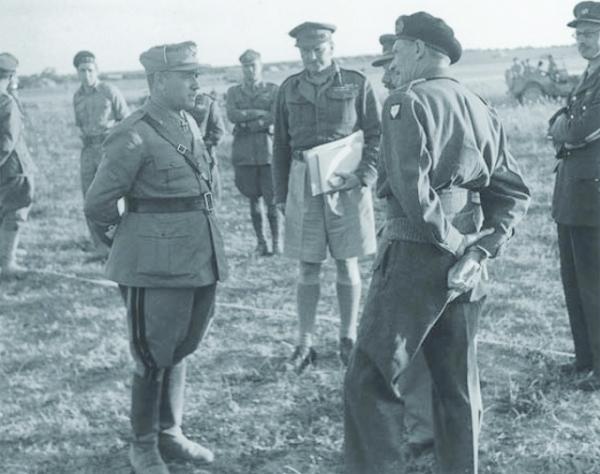Video: '194 - The End of the War in Africa - WW2 - May 14, 1943' (May 9-13, 1943, at 8:57)
(Thursday, May 13, 1943, UK General Alexander cabled PM Churchill at 1:16 p.m. Central European Summer Time (CEST); part of Mediterranean and Middle East Theatre of World War II)— The North African Campaign — fought between the Allies and the Axis Powers since June 10, 1940 — came to an end today after the 1st Italian Army of General Giovanni Messe Messe surrendered at 12:20 p.m. CEST and the last German radio station in Africa closed down at 1:12 p.m.
The commanding British Field Marshal, Sir Harold Alexander, sent word to Prime Minister Winston Churchill at 1:16 p.m., saying that “It is my duty to report that the Tunis campaign is over. All enemy resistance has ceased.”
During the week, 150,000 Germans and Italians became prisoners of war of the Allies.
Video: 'Battlefield S2/E1 - The Battle for North Africa'
Fighting in North Africa started with the Italian declaration of war on June 10, 1940. On June 14, the British Army’s 11th Hussars (assisted by elements of the 1st Royal Tank Regiment, 1st RTR) crossed the border from Egypt into Libya and captured the Italian Fort Capuzzo.
This was followed by an Italian counter-offensive into Egypt and the capture of Sidi Barrani in September and its recapture by the British in December following a British Commonwealth counteroffensive, Operation Compass.
During Operation Compass, the Italian 10th Army was destroyed and the German Afrika Korps—commanded by Erwin Rommel, who later became known as “The Desert Fox”—was dispatched to North Africa in February 1941 during Operation Sonnenblume to reinforce Italian forces in order to prevent a complete Axis defeat.
Video: 'The World at War: Tough Old Gut: Italy - November 1942-June 1944 (13 of 26)' (Afrika Korps surrenders at 10:32)
A fluctuating series of battles for control of Libya and regions of Egypt followed, reaching a climax in the Second Battle of El Alamein in October 1942 when British Commonwealth forces under the command of Lieutenant-General Bernard Montgomery inflicted a decisive defeat on Rommel’s Afrika Korps and forced its remnants into Tunisia.
After the Anglo-American landings (Operation Torch) in North-West Africa in November 1942, and subsequent battles against Vichy France forces (who then changed sides), the Allies encircled several hundred thousand German and Italian personnel in northern Tunisia and finally forced their surrender today.
Nearly 400,000 Axis and Allied troops were lost, injured, or died of disease by the end of the North African campaign.
After the victory by the Allies in the North African campaign, the stage was set for the Italian Campaign to begin. The invasion of Sicily followed two months later.

